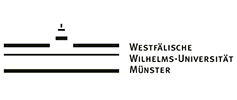Korean Constitutional Court and Constitutionalism in Political Dynamics: Focusing on Presidential Impeachment
DOI:
https://doi.org/10.31078/consrev423Keywords:
Grave Violation of Law, Korean Constitutional Court, Presidential ImpeachmentAbstract
The Constitutional Court of Korea, which should be a product of the June Democracy Movement in 1987, has transformed Korea's constitutionalism ever since its inception. The recent two impeachment cases decided respectively in 2004 against President Roh and in 2017 against President Park might be classic examples of how the state institutions including the Court interact with other institutions in a very political case in terms of political dynamics. In the impeachment case against President Roh, the Court positioned itself strategically by establishing the 'grave violation of law’ rationale, where it sided with the impeaching parliament by finding three counts of violations of law but dismissed the case in its entirety through the operation of the 'grave violation of law'. In the impeachment case against President Park, the Court basically followed the grave violation logic but reached a different conclusion to remove the President, which might be another strategic position taken by the Court, which is in line with the will of the super-majority of the Korean public. This paper aims to discuss how the Constitutional Court has developed its strategic position in terms of political dynamics, by analyzing the two presidential impeachment cases.References
Ahn, Kyong-Whan. "The Influence of American Constitutionalism in Korea." Southern Illinois Law Journal 22 (1997).
Berger, Raoul. Impeachment: The Constitutional Problems. London: Harvard University Press, 1973.
Constitutional Court of Korea. Thirty years of the Constitutional Court of Korea. South Korea: Constitutional Court of Korea, 2018.
Gerhardt, Michael. The Federal Impeachment Process. Chicago: The University of Chicago Press, 2000.
Kim, Ha-Yeol. "Presidential Impeachment – 2017.3.10. 2016Hun-na 1 decision." Beobjo 722 (2017). Beojo Association.
Kim, Jin-Wook. "The Grounds for Presidential Impeachment under the Korean Constitution." The Justice 161 (2017). The Korean Legal Center.
Kim, Jin-Wook, "An Essay on Grounds for Impeachment." State and Constitution I (2018). Bobmun Sa.
Kim, Jin-Wook."Freedom of Business under the Korean Constitution." Business Finance Law 54 (2012). Center for Financial Law of Seoul National University.
Kim, Jong-Cheol. "What Does the Korean Constitutional Court Miss or Misunderstand in the Impeachment Trial against President Roh Moo-Hyun?" World Constitutional Law Review 9 (2004).
Lee, Beom-Jun. Constitutional Court: Tells about Korea’s recent history. Seoul: Kungree, 2009.
Lee, Youngjae."Law, Politics, and Impeachment of Roh Moo-Hyun from a Comparative Constitutional Perspective." American Journal of Comparative Law 53 (2005).
Lin, Chien-Chih. "Pace of Constitutional Transition Matters: The Judicialization of Politics in Indonesia and Korea." UCLA J. INT’L L. & FOR. AFF 20, (2016).
Park, Jonghyun. "The Judicialization of Politics in Korea." Asian-Pacific Law & Policy Journal 10 (2008).
Park, Myung-Lim. "Constitution, Constitutionalism, and Democracy in South Korea: Focusing on the Presidential Impeachment by the National Assembly in 2004." Political Scientists Society Review 39-1 (2005).
Posner, Richard. An Affair of State: The Investigation, Impeachment, and Trial of President Clinton. (London: Harvard University Press, 2000).
Sunstein, Cass. "Impeaching the President." University of Pennsylvania Law Review 147, (1998).
Berger, Raoul. Impeachment: The Constitutional Problems. London: Harvard University Press, 1973.
Constitutional Court of Korea. Thirty years of the Constitutional Court of Korea. South Korea: Constitutional Court of Korea, 2018.
Gerhardt, Michael. The Federal Impeachment Process. Chicago: The University of Chicago Press, 2000.
Kim, Ha-Yeol. "Presidential Impeachment – 2017.3.10. 2016Hun-na 1 decision." Beobjo 722 (2017). Beojo Association.
Kim, Jin-Wook. "The Grounds for Presidential Impeachment under the Korean Constitution." The Justice 161 (2017). The Korean Legal Center.
Kim, Jin-Wook, "An Essay on Grounds for Impeachment." State and Constitution I (2018). Bobmun Sa.
Kim, Jin-Wook."Freedom of Business under the Korean Constitution." Business Finance Law 54 (2012). Center for Financial Law of Seoul National University.
Kim, Jong-Cheol. "What Does the Korean Constitutional Court Miss or Misunderstand in the Impeachment Trial against President Roh Moo-Hyun?" World Constitutional Law Review 9 (2004).
Lee, Beom-Jun. Constitutional Court: Tells about Korea’s recent history. Seoul: Kungree, 2009.
Lee, Youngjae."Law, Politics, and Impeachment of Roh Moo-Hyun from a Comparative Constitutional Perspective." American Journal of Comparative Law 53 (2005).
Lin, Chien-Chih. "Pace of Constitutional Transition Matters: The Judicialization of Politics in Indonesia and Korea." UCLA J. INT’L L. & FOR. AFF 20, (2016).
Park, Jonghyun. "The Judicialization of Politics in Korea." Asian-Pacific Law & Policy Journal 10 (2008).
Park, Myung-Lim. "Constitution, Constitutionalism, and Democracy in South Korea: Focusing on the Presidential Impeachment by the National Assembly in 2004." Political Scientists Society Review 39-1 (2005).
Posner, Richard. An Affair of State: The Investigation, Impeachment, and Trial of President Clinton. (London: Harvard University Press, 2000).
Sunstein, Cass. "Impeaching the President." University of Pennsylvania Law Review 147, (1998).
Downloads
How to Cite
Kim, J. W. (2018). Korean Constitutional Court and Constitutionalism in Political Dynamics: Focusing on Presidential Impeachment. Constitutional Review, 4(2), 222–248. https://doi.org/10.31078/consrev423
Issue
Section
Articles
































































